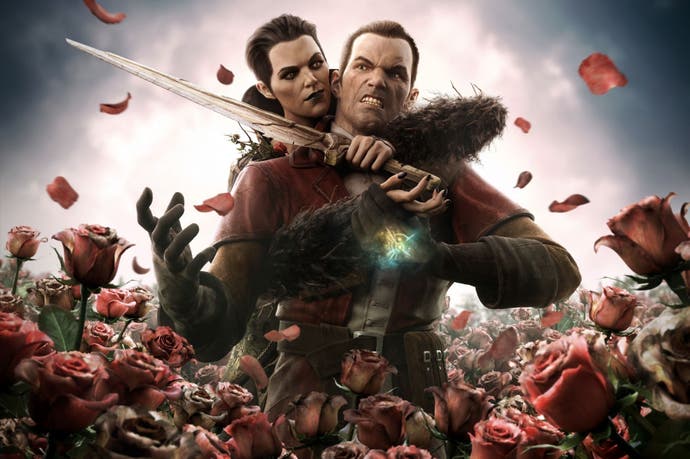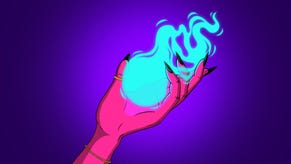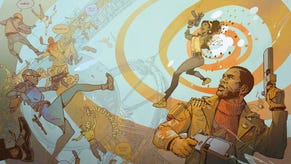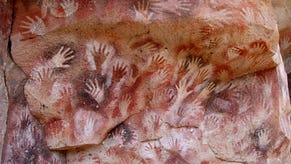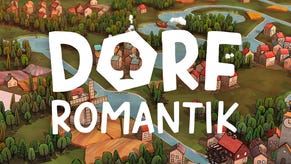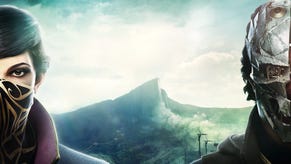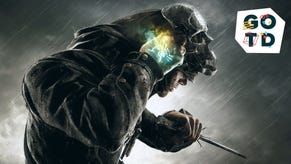Dishonored: The Brigmore Witches review
A blink to the past.
Daud is not supposed to be a squeamish man: he is, after all, the assassin who drove a knife into the heart of Dunwall's Empress and made off with her quivering child during the opening scenes of 2012's Dishonored. Even so, the first time you encounter a Brigmore Witch - a siren riddled with varicose veins and black magic - you'd be forgiven for letting out a spindly yelp. These shrieking, teleporting hags are perhaps the most upsetting antagonists yet in Arkane's stealth action game (of which The Brigmore Witches is the second major expansion), not least because they are led by that most alarming of creative fiends: the mad painter.
Delilah and her coven live in the dilapidated Brigmore mansion, one-time seat of an ancient family that was bankrupted a generation ago. The mental decay behind her own handsome face is reflected in the crumbling masonry and rushing brown water of her headquarters, which are made all the more unsettling by the beautiful surroundings of this greenbelt residence. But before you venture into the vast Brigmore estate, you must chase through a handful of other missions in Daud's story arc, as introduced by the preceding episode, The Knife of Dunwall.
The first of these sees Daud enter Coldridge prison - shortly after Corvo, the protagonist of the original game, escaped one of its cells. Far from a straightforward reuse of the location, this time you're able to explore the prison's various wings, choose which of its inmates to free and even witness the execution (or salvation, if you choose to intervene) of the guards held responsible for Corvo's escape. It's an ingenious set-up, offering an alternative perspective on a familiar location during the aftermath of familiar events. But with Daud's unique set of abilities - which allow him to conjure forth assassins, or to pull enemies toward him and choke them out while suspended in air - it feels quite different.
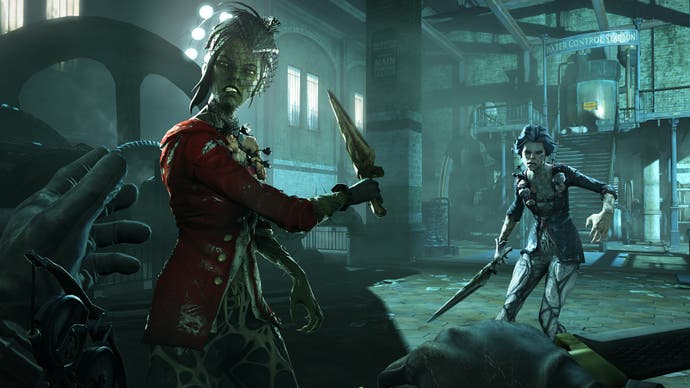
Drapers Ward is the central pillar of the story. Divided into several interlinked areas, it sprawls from Dunwall's docks to the moping sewers underneath a cavernous textiles factory. The waterfront properties at its centre stare one another down across a lazy canal, which divides the two rival gangs of the area. The Hatters are well-heeled, dapper men in colourful waistcoats and top hats, while the Eels are urban pirates who use long hooked poles to gut their rivals. The two gangs spar on walkways and beat up stragglers in cosy cul-de-sacs while you quest around them, adding a third-party conflict that you are both detached from and spectator to. While the storyline demands, in time, that you take a particular side, it's up to you whether to lend your sword or sleep darts to either faction as you skulk. In most cases, the kerfuffle of their skirmishes allows you to continue your work unnoticed.
Before each mission, you have the opportunity to purchase supplies, use any blueprints you found in the previous mission in order to upgrade your equipment and, most interestingly, purchase 'favours' that will tip the odds in your favour in the ensuing operation. At their most basic, favours might reveal information or grant access to equipment caches with ammunitions and even bonus runes. But there are more costly options that significantly alter the way in which you approach a mission by, for example, providing Daud with a disguise to aid his entry into Coldridge Prison, or by cutting a hole in some perimeter fence to allow for a more stealthy approach.
The combination of purchases, upgrades and favours strengthens the importance of currency in the game as, without sufficient funds to invest, your chances of success (or, at least, progression without detection) diminish. In this way you have a stronger motivation to scavenge for the gold, oil, herbs and trinkets littered through the game, and the framing economy tightens pleasingly as a result.
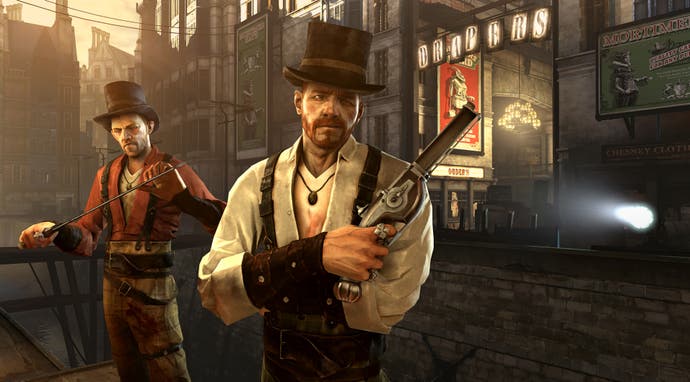
Dishonored's sense of wonder came from the variety of ways in which you were able to complete objectives, with the greatest rewards reserved for those players who made it through each task with neither blood on their hands nor a trace of their presence in anybody's memory. Arkane cuts no corners with this add-on, offering a wide and motivating range of options to complete each task, running up the scale from the most chaotic choices (which might render an entire area's population wiped out by toxic gas) to the more challenging, and usually more convoluted, schemes in which nobody in the immediate vicinity is harmed. Alongside these wide-angle choices, you must also hunt for Runes, which can be used to permanently upgrade Daud's abilities, and Bone Charms, which offer impermanent buffs and improvements of various types.
This is no hastily prepared footnote to the Dishonored myth. The Brigmore Witches is not only as textured as the game upon which it builds, with lavish scenery and elaborate set designs that communicate a weighty sense of place. But it's also as layered, with smart, meaningful tweaks and additions to your interactive toolset, and multiple branching routes to your objectives. There are curious, idiosyncratic side missions that run concurrently to your main quest (in one, you must recreate Granny Rags' wedding by bringing a bride, a groom and a ring to fashion a diorama). And, in contrast to the main Dishonored storyline, at last there's a clear, frightening and powerful antagonist. Larger and more intricate than The Knife of Dunwall, The Brigmore Witches emerges as one of the finest examples of how to not only expand a blockbuster video game, but also of how to enrich and deepen one.
